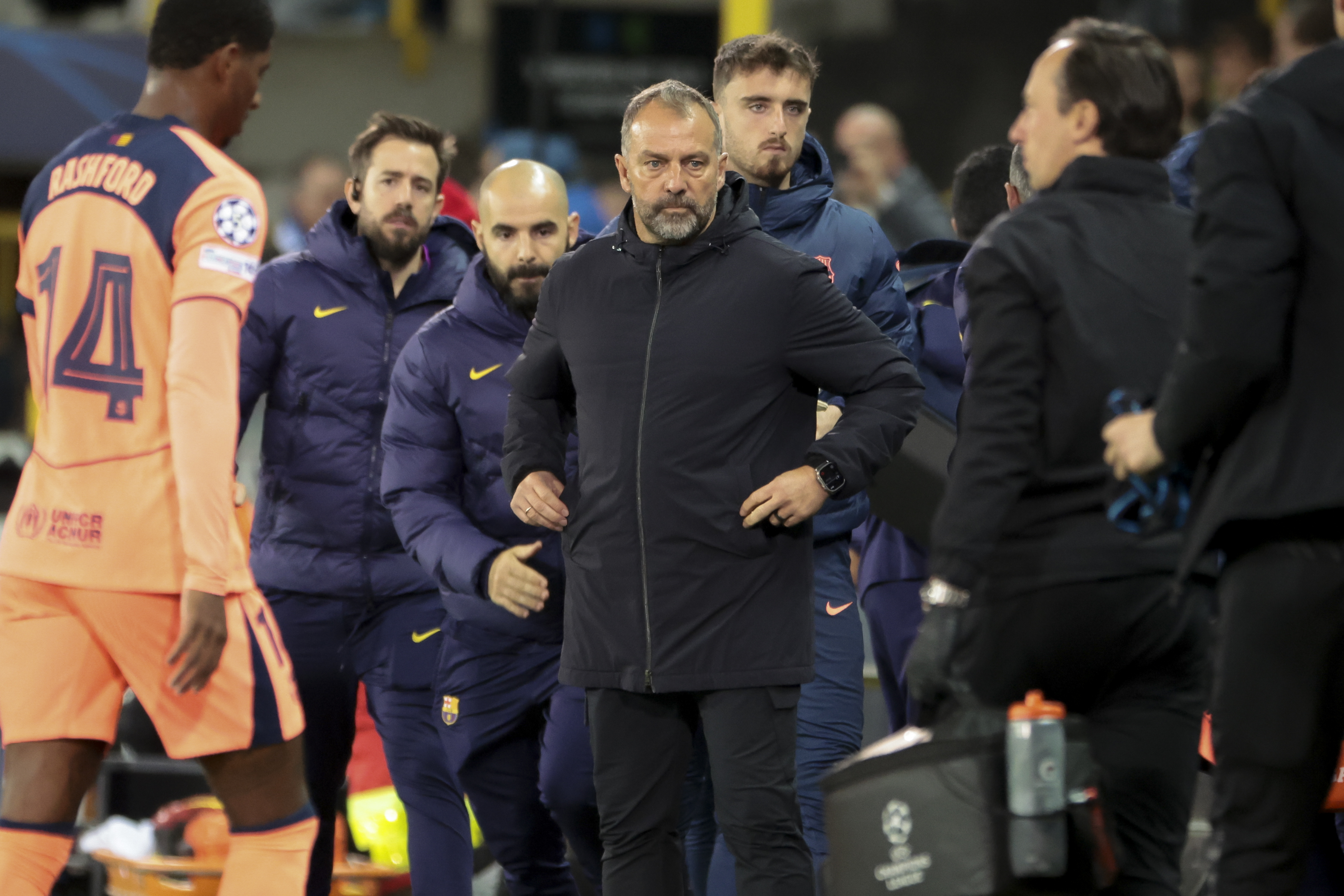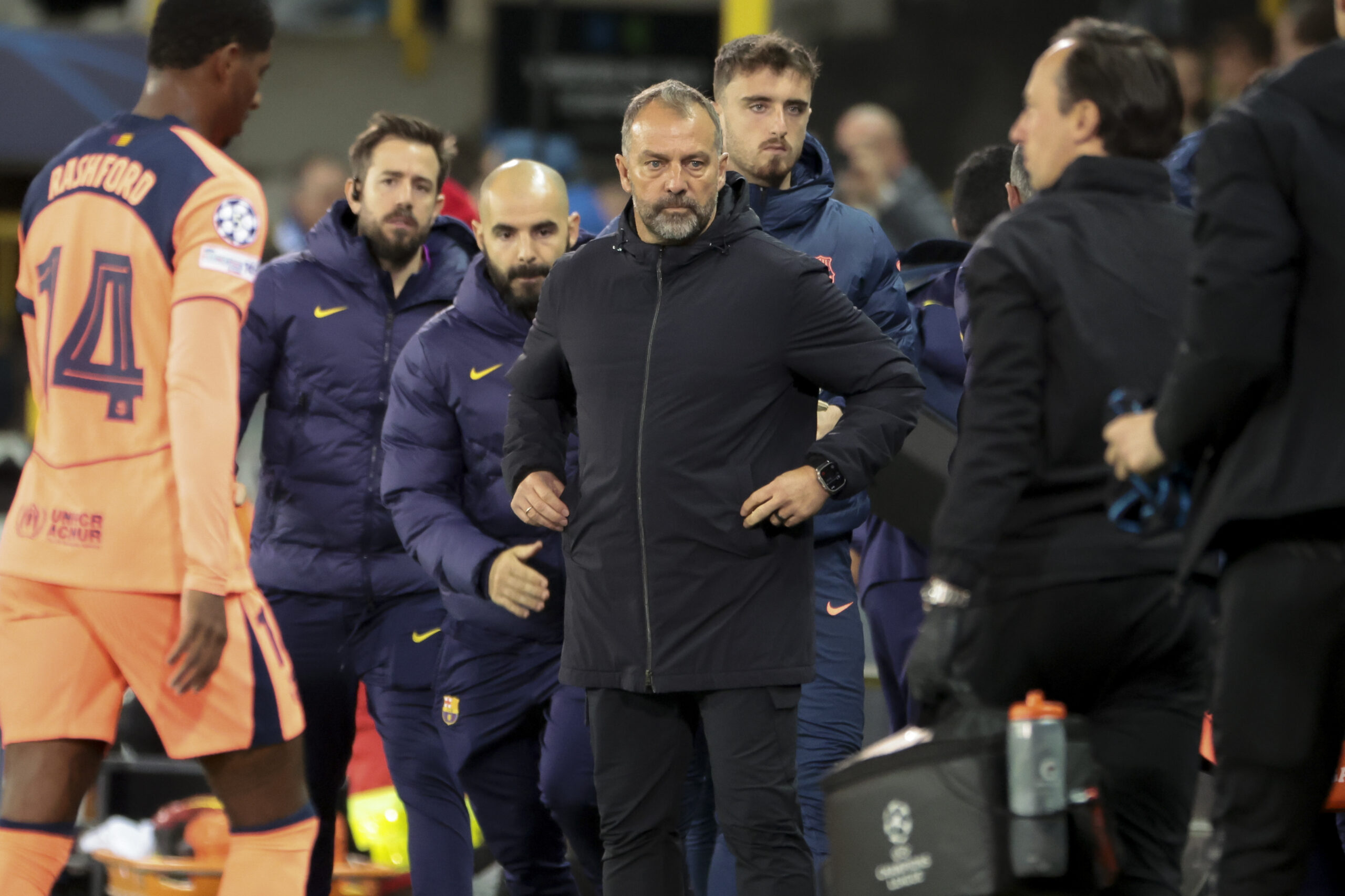Barcelona’s Defensive Collapse Mirrors Political Turmoil: A Legacy in Crisis
The recent 3-3 draw between Barcelona and Club Brugge in the Champions League has ignited fierce debate within the football community, particularly regarding the performance of the Catalan club under Hansi Flick. Former Barcelona star Thierry Henry did not hold back in his criticism, emphasizing the alarming state of the team’s defense and raising questions about its future in the competition. His remarks have sparked a broader conversation about the club’s identity, tactical philosophy, and the implications of its current trajectory.
Barcelona has long been synonymous with attacking flair, possession-based football, and a staunch defensive line. Under the legendary management of Pep Guardiola, the club established a playing style that was not only effective but also aesthetically pleasing. The tiki-taka approach, characterized by short passes and movement, allowed the team to dominate possession while also minimizing defensive errors. However, the recent performances have raised eyebrows, as the once-mighty defense seems to crumble under pressure.
Henry’s comments point to a deeper issue that transcends mere tactical adjustments. He articulated a fundamental concern: the inability to defend effectively against opponents who exploit the high defensive line. He stated, “You can’t carry on defending like this,” highlighting the critical need for a robust defensive strategy. The observation that players are allowed to run freely at the goal is particularly disconcerting, as it suggests a lack of discipline and organization within the squad.
The defensive frailties were evident against Club Brugge, where the team conceded three goals, showcasing vulnerabilities that have become all too familiar. It is a stark contrast to the defensive solidity that characterized Barcelona’s heyday. Flick’s insistence on maintaining the club’s playing philosophy, despite the evident shortcomings, raises questions about his tactical acumen. The philosophy of “we are Barça” may resonate with the club’s rich history, but it risks becoming a mantra devoid of practical application if results continue to falter.
The juxtaposition of Henry’s critique and Flick’s steadfastness reflects a broader tension within the club. Barcelona, once a beacon of success in European football, now finds itself at a crossroads. The failure to adapt to changing dynamics in the game can lead to catastrophic consequences. Flick’s reluctance to deviate from the established style, even in the face of glaring deficiencies, suggests an adherence to ideals over results.
Historically, clubs that resist evolution often face dire repercussions. The football landscape is ever-changing, with tactical innovations and player adaptations reshaping how the game is played. Barcelona’s commitment to its identity must be tempered with a pragmatic approach that acknowledges current realities. The defensive lapses observed against Brugge are not isolated incidents but rather symptomatic of deeper issues that require urgent attention.
Moreover, the broader implications of Barcelona’s struggles extend beyond the pitch. The club’s financial situation has been precarious, exacerbated by the COVID-19 pandemic and subsequent mismanagement. With mounting debts and a reduced wage bill, the pressure to perform is amplified. Each match not only affects the club’s standing in the competition but also its financial health, as success in the Champions League directly correlates with revenue generation.
The club’s leadership must confront these challenges head-on. The decisions made in the coming months will shape the future of Barcelona, determining whether it can reclaim its status as a European powerhouse or continue to languish in mediocrity. The dichotomy between maintaining a revered philosophy and adapting to modern football’s demands is a delicate balance that requires astute management.
In light of Henry’s comments, it becomes evident that the narrative surrounding Barcelona is not merely about tactics or individual performances. It is a reflection of a club grappling with its identity in an era of uncertainty. The legacy of Barcelona, built on a foundation of excellence, is now at risk of being tarnished by defensive incompetence and a failure to adapt.
The football community watches closely as Barcelona navigates this tumultuous period. The club’s ability to address its defensive shortcomings and redefine its tactical approach will be pivotal in determining its trajectory in the Champions League and beyond. The echoes of Henry’s criticism serve as a clarion call for change, urging the club to confront its vulnerabilities and reclaim its place among the elite. As the season unfolds, the stakes could not be higher for a club that has long been synonymous with success and artistry on the football field.

Former Barcelona star Thierry Henry has had some strong criticism for Hansi Flick and his team after Wednesday’s 3-3 draw with Club Brugge in the Champions League.
The Catalans managed to snatch a draw in Belgium, but there are real concerns over how far they can go in the competition after seeing their defence ripped apart once again.
Here’s what Henry made of it all:
“I don’t want to talk about my old club like that, but you’ve got to call a spade a spade,” he told CBS Sports. “You can’t carry on defending like this.”
“I can’t bypass the fact that you keep on letting people go and run at your goal. If you’re a team now, if you didn’t do your due diligence that Barcelona play a high line and you don’t make the late run … Late runs. You can go and do it every single time!
“Why would you put yourself in a situation when you’re going to make yourself suffer alone? No disrespect to what Brugge did, but you defend the ball and you defend your goal.
“You don’t just defend the ball when there is no pressure on it, and you let people run left and right, and then they have chances left and right every single time. That’s not really something that you want to do. You’re supposed to erase mistakes, not create them yourself.”
Yet Flick hinted he wasn’t going to change his methods after the game, saying: “We can change some things, but we also have to stick to our philosophy. We don’t have to change our style of play; we are Barça.”

